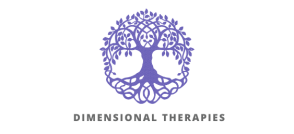Spirituality in Counselling: Healing Through Meaning and Connection
When life feels overwhelming, many people turn to counselling to find relief, understanding, and direction. Therapy can help us make sense of emotions, develop coping skills, and rebuild confidence. But for many people, healing involves more than just managing thoughts or behaviours—it also touches something deeper inside. This is where spirituality can become a meaningful part of counselling.
What Does “Spirituality” Really Mean?
Spirituality means different things to different people. For some, it’s connected to faith or religion. For others, it’s about finding purpose, feeling connected to nature, or simply being aware of something greater than themselves. You don’t have to belong to a particular religion—or any religion at all—to have a spiritual side.
In counselling, spirituality is often described as the search for meaning, belonging, and inner peace. It’s about asking questions such as:
- What gives my life purpose?
- What do I believe about myself and the world?
- How can I feel more connected—to others, to nature, or to something beyond me?
Exploring these questions can open doors to deeper healing and self-understanding.
How Spirituality Can Support Healing
When you’re facing difficult emotions—grief, anxiety, loss, or uncertainty—sometimes practical tools like breathing techniques or problem-solving aren’t enough on their own. Spirituality can add another layer of comfort and strength.
Many people find that connecting with their beliefs, values, or sense of purpose helps them:
- Feel less alone. Knowing that there’s something larger than the current struggle can bring hope.
- Find peace in uncertainty. Spiritual practices like prayer, meditation, or reflection can quiet the mind.
- Discover meaning in pain. Counselling that includes spirituality can help you make sense of experiences and grow from them.
- Reconnect with joy. Spirituality can remind you of what truly matters—love, compassion, creativity, or connection.
Your counsellor doesn’t need to share your beliefs to support your spiritual wellbeing. Their role is to help you explore what feels meaningful to you.
What Spirituality Looks Like in Counselling
Every person’s spiritual journey is unique. In counselling, this might look like:
- Talking about your values, beliefs, or faith as part of understanding yourself.
- Exploring how spiritual experiences or communities have shaped you.
- Learning mindfulness or relaxation techniques that bring calm and presence.
- Finding rituals or daily practices that make you feel grounded—like journalling, gratitude, time in nature, or creative expression.
Your counsellor may ask gentle questions such as, “What helps you feel connected or at peace?” or “Are there beliefs or traditions that support you?” These questions aren’t about pushing religion—they’re about helping you uncover your own sources of strength.
You’re in Control of the Process
It’s important to know that spirituality in counselling is always your choice. You decide if, when, and how it becomes part of the conversation. If spirituality doesn’t feel relevant or comfortable for you, your counsellor will focus on other approaches that fit better.
Some people have had painful experiences with religion or spiritual communities. Counselling provides a safe, non-judgmental space to talk about that too—to make peace with those experiences or redefine spirituality in a way that feels healing.
Counselling as a Journey Toward Wholeness
Many clients describe therapy as a journey back to themselves. Spirituality can help deepen that journey by connecting the mind, body, and soul. It invites curiosity, compassion, and openness.
When counselling includes the spiritual dimension, it’s not just about “fixing” what feels broken—it’s about reconnecting with who you are at your core. It’s about rediscovering your inner wisdom, your capacity to love, and your sense of belonging in the world.
For example:
- A person grieving a loved one might find comfort in exploring what love and loss mean to them beyond the physical.
- Someone feeling lost or directionless might reconnect with their sense of purpose or calling.
- A client living with anxiety might find calm through mindfulness, prayer, or breathing practices that bring them into the present moment.
Each of these experiences invites healing on more than one level—mental, emotional, and spiritual.
You Don’t Need All the Answers
Sometimes people hesitate to bring up spirituality because they’re unsure what they believe or worry about being judged. But spirituality doesn’t require certainty—it can simply be the desire to explore what gives your life meaning.
Counselling offers a safe space for that exploration. You don’t need to have a label or a fixed belief system. Whether you’re questioning, curious, or rediscovering something you once believed, therapy can help you find your own truth and peace.
Finding Balance and Hope
Incorporating spirituality into counselling doesn’t mean every session becomes a discussion about faith or philosophy. Instead, it means recognising that you are more than your thoughts and feelings—you are a whole person, with a body, mind, and spirit.
By acknowledging this fuller picture, counselling becomes a place where you can heal more completely. You can learn to listen not only to your mind but also to your heart and inner voice.
Final Thoughts
Spirituality in counselling is about connection—connection to yourself, to others, and to something greater that brings meaning to life. It offers a pathway to healing that goes beyond problem-solving, helping you find peace, purpose, and authenticity.
If you’re beginning therapy or considering it, you might ask yourself:
- Do I want to explore the spiritual side of my healing?
- What helps me feel most alive, hopeful, or grounded?
You don’t have to have the answers before you begin. Counselling is a space to discover them—with compassion, curiosity, and support.
